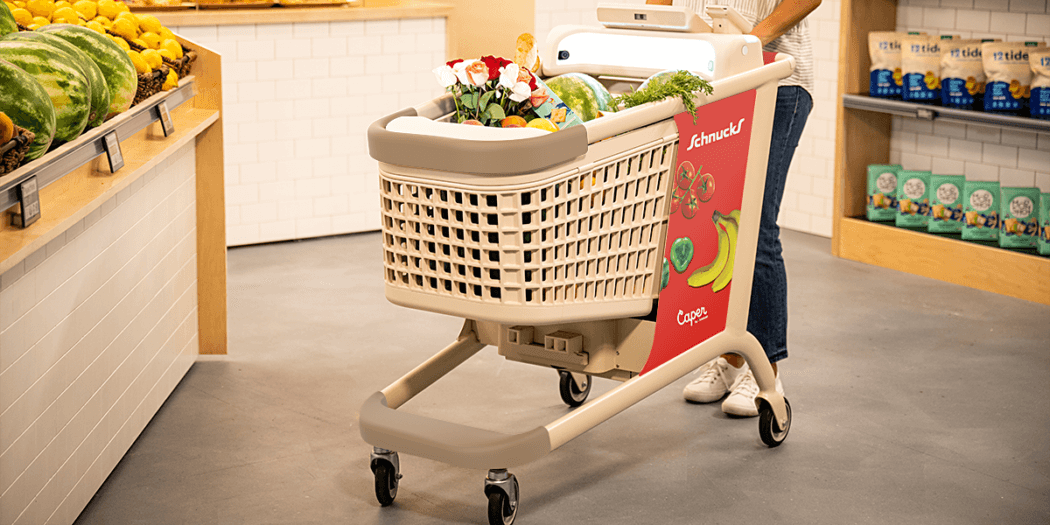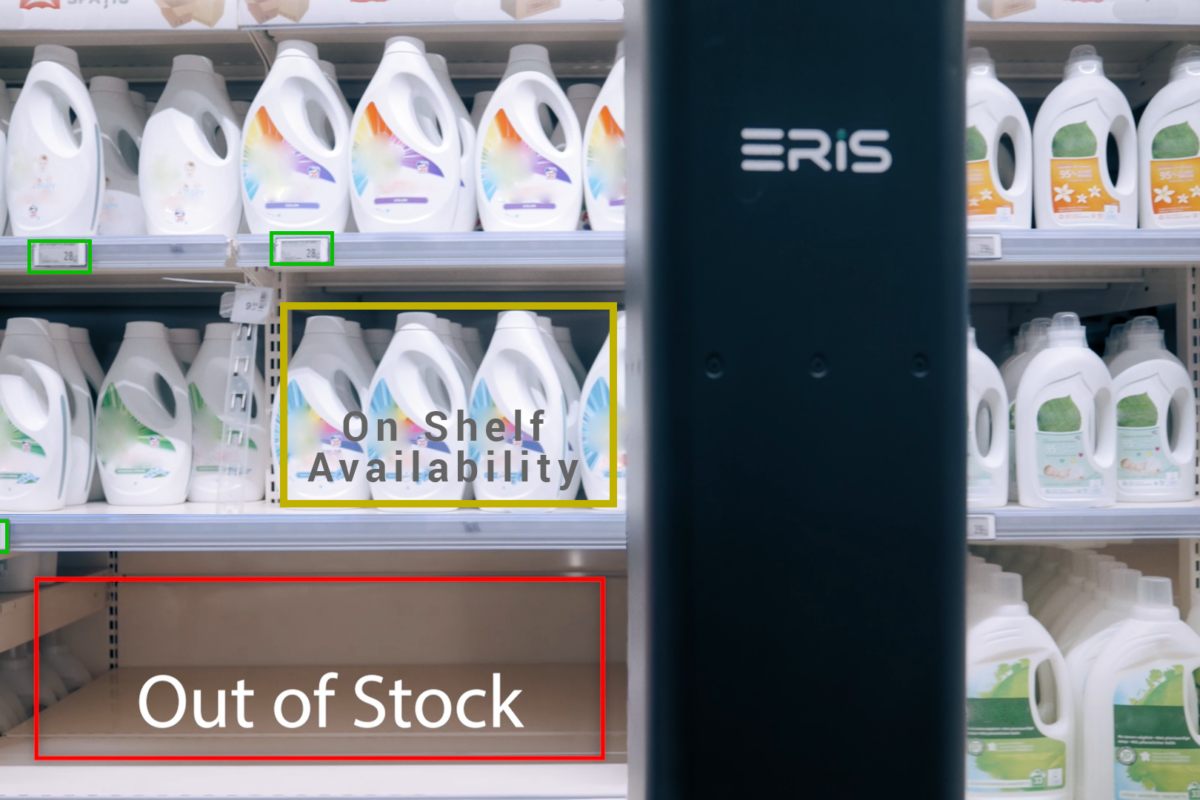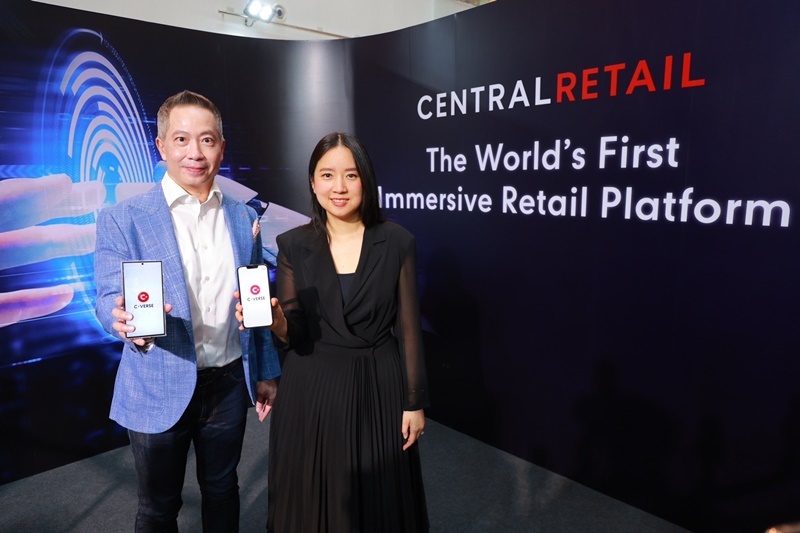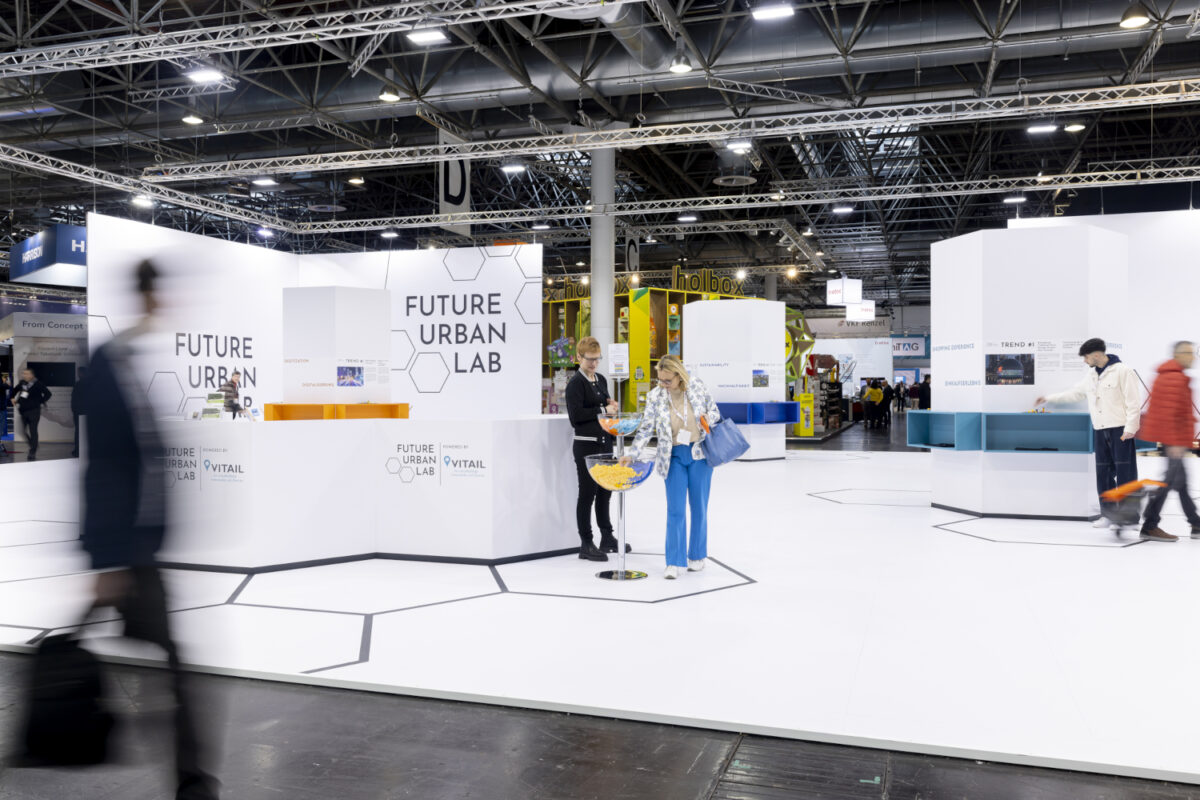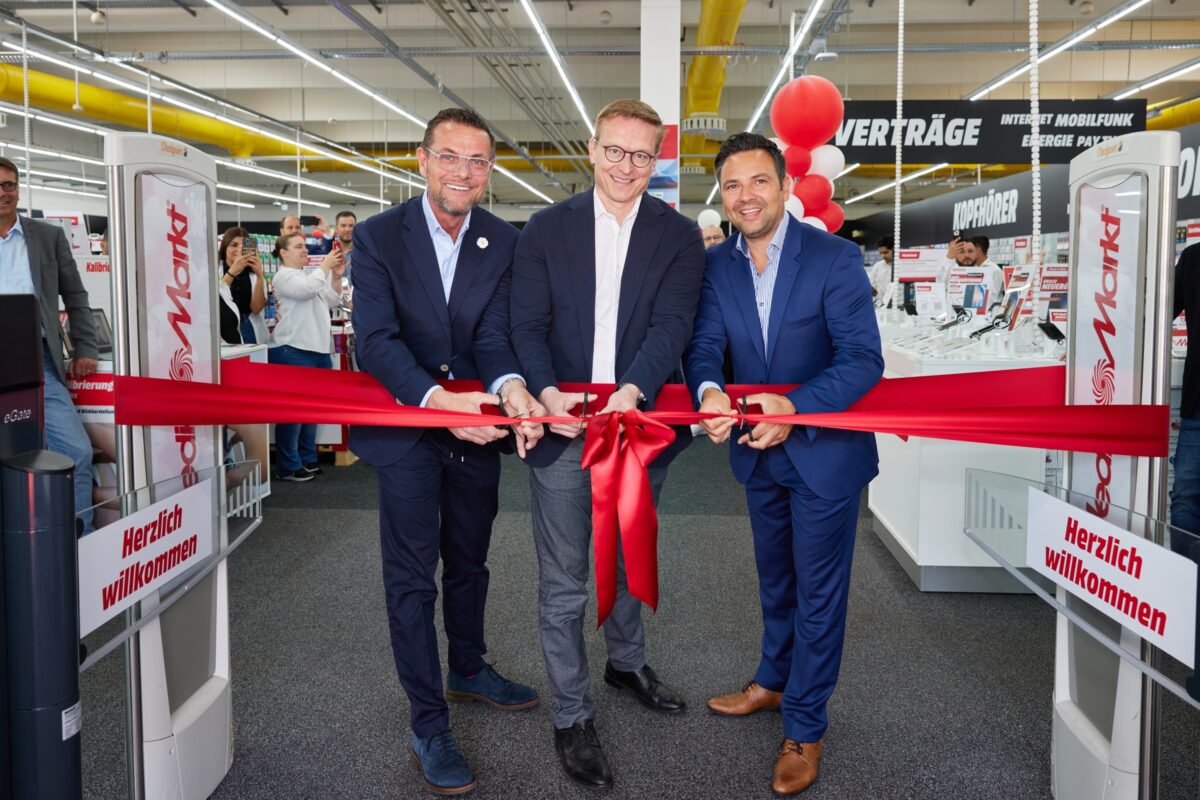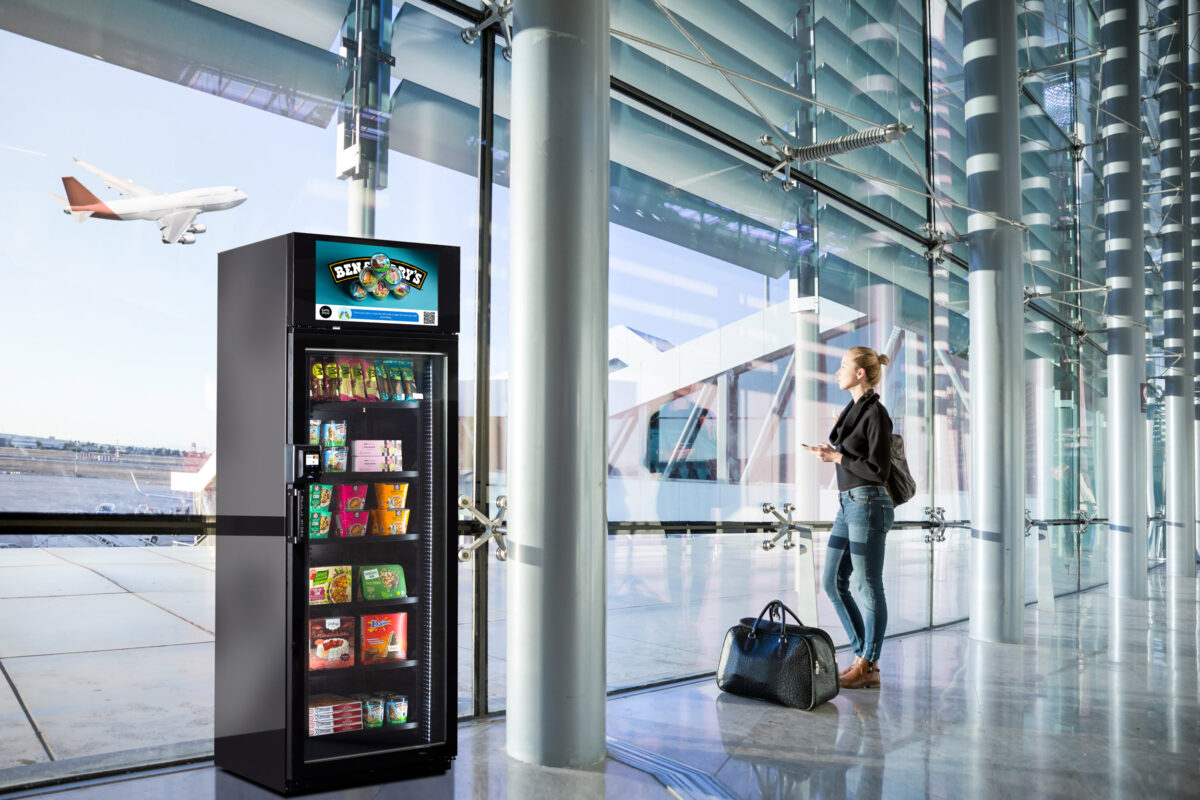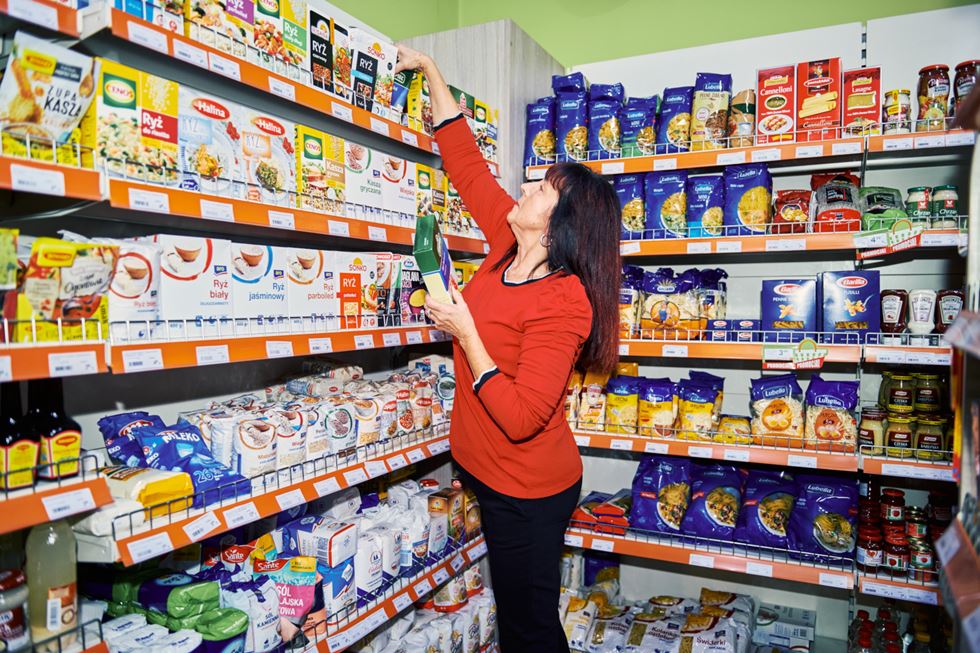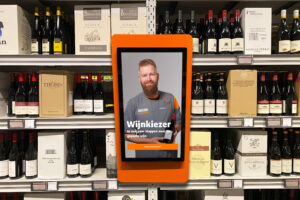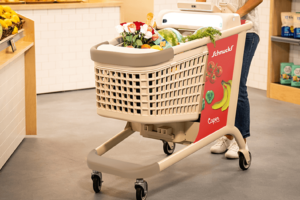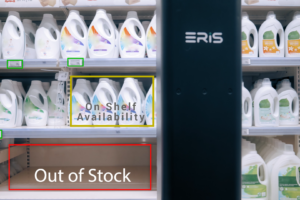Grab&Go concepts in supermarket chains and small neighborhood stores
by Julia Pott (exclusively for EuroCIS.mag)
The autonomous store, which enables shopping with an automated payment process in the background, represents a major leap forward in innovation in the retail sector. But which companies will afford to implement such a high-tech concept, one wondered at the beginning of the development? The present shows: perhaps more than originally assumed …
Grab&Go: unbeatably convenient shopping experience
Autonomous stores offer arguably the most convenient, low-friction brick-and-mortar shopping experience to date: After checking in at the store’s entrance, you take your items off the shelves and simply walk out with them at the end of your shopping trip.
After Amazon set the technology bar high for autonomous stores with its “just-walk-out” concept, many retailers and technology providers followed suit. Unlike some other hyped technologies, the smart store trend has lived up to big expectations.
The offering is growing steadily: Test and pilot stores are sprouting up all over the world. Anyone who assumes that this high-tech store concept is reserved for the very big players is mistaken: medium-sized retailers and smaller companies are now also establishing autonomous stores. Even in Germany, where customers are notoriously cautious about trying out new technology, things are picking up.
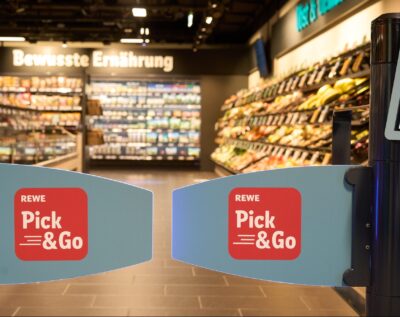
© REWE Group
Supermarket chains and convenience stores follow suit
On December 14, 2022, REWE announced that after two hybrid test stores in Cologne and Berlin, which offered both traditional checkouts and autonomous checkout, the first fully autonomous REWE store Pick&Go has now opened in Munich. “In the coming weeks, we will analyze exactly how the offer of shopping completely without a checkout process will be received here in Munich,” says Peter Maly, Divisional Director of REWE Group, regarding the second test phase of the checkout-free shopping offer.
In order to shop frictionlessly, customers have to use REWE’s “Pick&Go” app. With it, they log in at the store’s entrance barriers and can pay via Paypal, Google Pay, Apple Pay or credit card. Cameras, artificial intelligence and weight sensors in the shelves detect which products have been taken. The computer vision technology comes from Trigo Vision Ltd.
The Hot Topic Smart Store at EuroShop 2023 will revolve around autonomous store concepts and technologies. It’s worth a visit.
According to REWE, this in no way means that staff in the store will be reduced: “For individual questions and advice, store staff will be available to customers as usual – because despite an autonomous checkout, there are just as many employees working in the first autonomous REWE Pick&Go store as in a conventional REWE store.” They would, for example, be increasingly deployed in stocking goods.
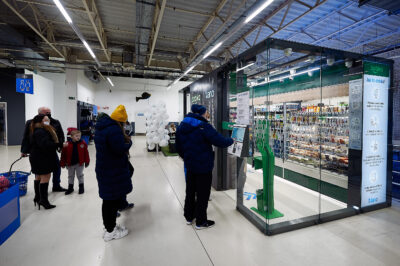
© Żabka Group
The Polish Żabka Group, owner of the largest convenience store chain in Poland, is already a considerable step ahead: According to company information, the Żabka Nano chain is the most extensive smart store chain in Europe with 25 mini stores. Depending on the location, the company uses different formats such as traditional stores, independent small stores in container format or shop-in-shop concepts. Locations range from city centers to train and subway stations to universities.
The computer vision technology comes from AiFi. Tomasz Blicharski, CEO of Żabka Future, emphasizes that the autonomous stores can be entered and used with any payment card, that is almost unique in the world. “We want to redefine the shopping speed”, explains Tomasz Suchański, CEO of the Żabka Group.
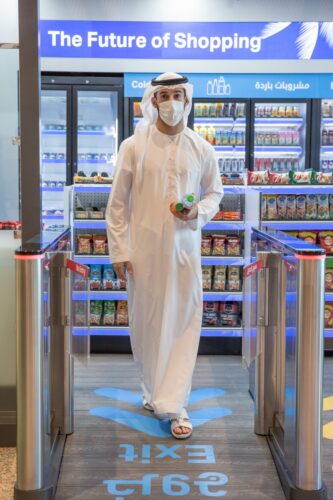
© ADNOC
In the United Arab Emirates, ADNOC – the Abu Dhabi National Oil Company – is touting a frictionless shopping experience at its ADNOC Oasis stores. The technology recognizes groups that belong together, the company explains in a press release, so families, for example, can shop with just one common check-in and virtual shopping cart.
According to ADNOC, customers can enter the stores with a bank card, Emirates ID or by scanning the QR code. Those who do not use the in-house app will receive an electronic receipt.
The new stores will revolutionize shopping, making the experience easier, faster and more convenient than ever before, explains Bader Saeed Al Lamki, CEO of ADNOC Distribution. “The consumer landscape has naturally evolved as a result of the COVID-19 pandemic and we see how important accessible retail is for our customers.”
The hypermodern corner store on the block
Numerous small providers are testing and operating autonomous stores in various formats.
German technology startup Autonomo opened its HOODY store in Hamburg in August 2022. According to its slogan, HOODY is “your local organic market” in Hamburg’s Eppendorf district. The store advertises its opening hours, almost around the clock, only shopping on Sundays is possible only around noon.
The concept focuses strongly on the local, on the idea of neighborhoods, which is what “Hoody” stands for as part of the word. According to the Autonomo website, the start-up’s vision is to redefine shopping in neighborhoods. Local commerce is to be revived, the structure of regional producers and suppliers strengthened, and security of supply guaranteed. Shopping in the neighborhood, whether urban or rural, is to remain attractive and secure jobs. For each neighborhood, Autonomo says according to its website, appropriate local and organic products are curated.
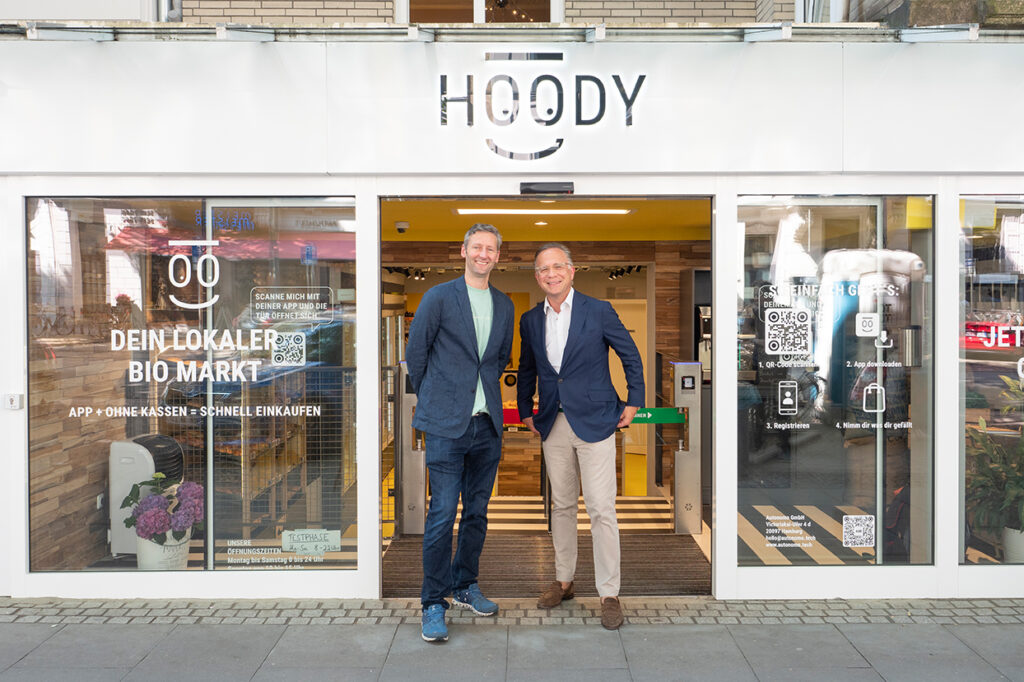
© Autonomo
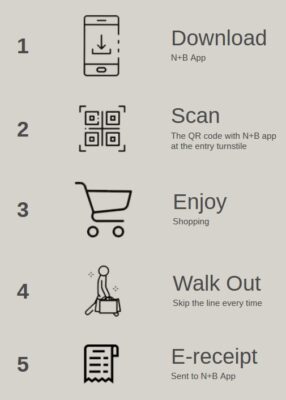
© Screenshot Website www.nourishandbloommarket.com
Patrick Mueller-Sarmiento, founder and chairman of Autonomo, sums up the concept this way: “We’ve created a market that’s new and innovative, but at the same time feels familiar in a special way.” With this concept, Autonomo also wants to expand beyond Germany’s borders this year, with corresponding agreements already in place.
Jamie Michael Hemmings and Jilea Hemmings focus their store concept on healthy eating combined with a high-tech shopping experience. Their focus is that everyone should have easy access to healthy food. During the pandemic, they opened an autonomous organic market that allowed self-determined shopping around the clock and even delivery by self-driving robots: Nourish + Bloom in the American state of Georgia. The market relies on gastronomic offerings in addition to an extensive assortment of daily necessities.
The technology partner is UST. Subhodip Bandyopadhyay, General Manager Emerging Technology at UST, explains the unique checkout process: In addition to machine vision to recognize items, voice and gesture control is also used, which can speed up the checkout process threefold.






